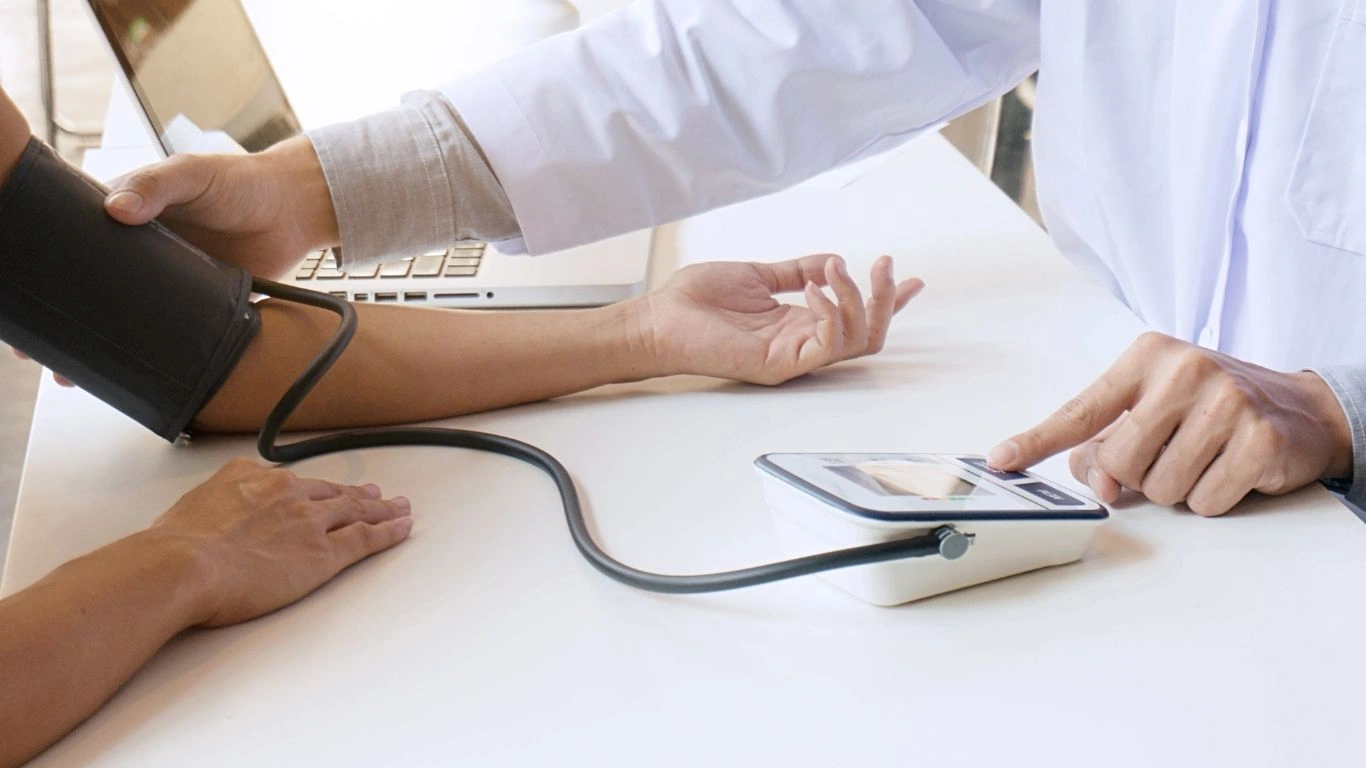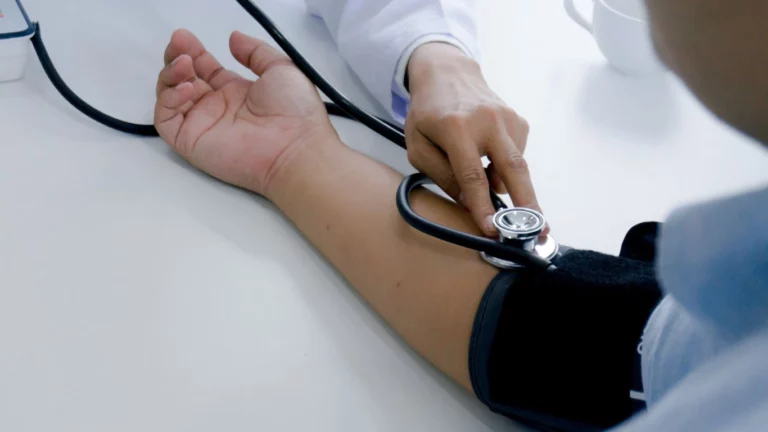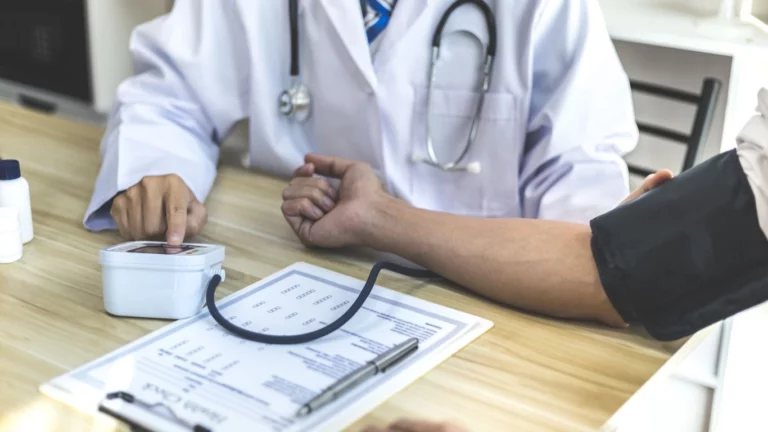How to Deal with Blood Pressure Medication Side Effects Effectively
Dealing with blood pressure medication side effects can feel like a tough journey, especially when you’re trying to manage your hypertension effectively. If you’re someone who’s recently been prescribed medication for high blood pressure, you might already have noticed some unexpected changes in how you feel. It’s not unusual to experience side effects, but the good news is, there are ways to handle them without compromising your health goals. From dizziness and fatigue to more serious reactions, the key is understanding what’s going on and finding strategies to navigate through it. As a hypertension expert, I’ve seen many patients face these challenges, and I want to share some tips that can help make this experience a little smoother for you.
Understanding the Common Side Effects of Blood Pressure Medications

First, let’s talk about what you might experience. Different medications affect the body in various ways, and while some side effects are mild and temporary, others may require adjustments. It’s important to recognize what’s typical and what might indicate that your medication isn’t the right fit for you.
Dizziness and Lightheadedness
If you’ve started taking blood pressure medication, dizziness or feeling lightheaded can be one of the first side effects you notice. This can happen when your blood pressure drops too quickly, especially after you stand up. It’s something I’ve seen many patients experience, and it’s usually linked to medications like diuretics or beta-blockers.
Here’s a personal tip: if you feel dizzy, try standing up slowly, and take a moment to let your body adjust. Staying hydrated and eating regularly can also help prevent this side effect. If you’re still feeling unsteady after adjusting your routine, it’s important to talk to your doctor. They may adjust your dosage or even suggest a different medication.
Fatigue and Tiredness
Another common issue is feeling more tired than usual. This can be due to the medications themselves or your body adjusting to lower blood pressure levels. For instance, medications like calcium channel blockers or ACE inhibitors can sometimes cause tiredness as your blood vessels relax and blood pressure decreases.
While some fatigue is normal, if it becomes overwhelming, don’t just push through it. I always recommend patients to track how they’re feeling day-to-day, and report anything that feels out of the ordinary. If it’s significantly affecting your quality of life, your doctor might suggest a medication switch or offer advice on managing energy levels throughout the day.
Digestive Issues: Nausea and Constipation
For some people, blood pressure medications can cause stomach-related side effects like nausea or constipation. These are especially common with diuretics, which are medications that help your body remove excess sodium and water.
To combat nausea, I suggest eating smaller meals more frequently throughout the day, instead of large meals. It’s also helpful to drink ginger tea or take over-the-counter remedies (with your doctor’s approval). For constipation, try incorporating more fiber into your diet, staying active, and drinking plenty of water. Again, if these issues persist, it’s always best to reach out to your healthcare provider to make sure everything is on track.
How to Manage Side Effects Effectively

Now that we’ve covered some of the common side effects, let’s dive into how you can manage them effectively. It’s important to approach this process with patience, as it may take some time to find the right balance between treating your hypertension and minimizing side effects. Here are a few strategies that can help:
1. Stay in Close Contact with Your Healthcare Provider
One of the most important things you can do is to keep an open line of communication with your healthcare provider. If you’re noticing side effects, don’t hesitate to report them. Remember, your doctor is there to work with you to find the best treatment plan for your needs.
In my experience, many patients feel like they should “tough it out,” but it’s crucial that you let your doctor know what you’re going through. There are often adjustments or alternatives available that can make a world of difference.
2. Monitor Your Blood Pressure Regularly
Regularly checking your blood pressure at home is another effective way to stay on top of your health. It can help you track whether your medication is working as expected, and if there are any issues with it. Keeping a record of your readings will provide valuable information that you can share with your doctor during check-ups.
Also, tracking your blood pressure can help identify trends. For example, if you notice a drop after adjusting your medication, you can share this information with your doctor to guide future decisions.
3. Focus on Lifestyle Changes
Medication is just one part of managing hypertension. A healthy lifestyle can help reduce the severity of side effects. I always encourage my patients to focus on a balanced diet, regular exercise, and stress management techniques. These lifestyle changes not only support your treatment plan but can also make your body more resilient to medication side effects.
- Diet: Incorporating foods rich in potassium, magnesium, and fiber can help support healthy blood pressure levels.
- Exercise: Aim for at least 30 minutes of moderate exercise most days of the week. This helps improve circulation and overall heart health.
- Stress Management: Try relaxation techniques like deep breathing, meditation, or yoga to help manage stress.
Remember, managing blood pressure is a marathon, not a sprint. A holistic approach that includes both medication and lifestyle adjustments is key to long-term success.
What to Do if You Experience Serious Side Effects

While most side effects are mild and temporary, some may require more urgent attention. If you experience anything more severe, such as chest pain, difficulty breathing, or swelling in your legs or ankles, it’s important to seek medical attention immediately. These could be signs of more serious issues like heart problems or kidney damage, and they need to be addressed quickly.
Always err on the side of caution when it comes to serious side effects. Call your doctor or visit the emergency room if you’re concerned about your health. Prompt action can help prevent long-term complications.
Adjusting Your Treatment Plan: What to Consider
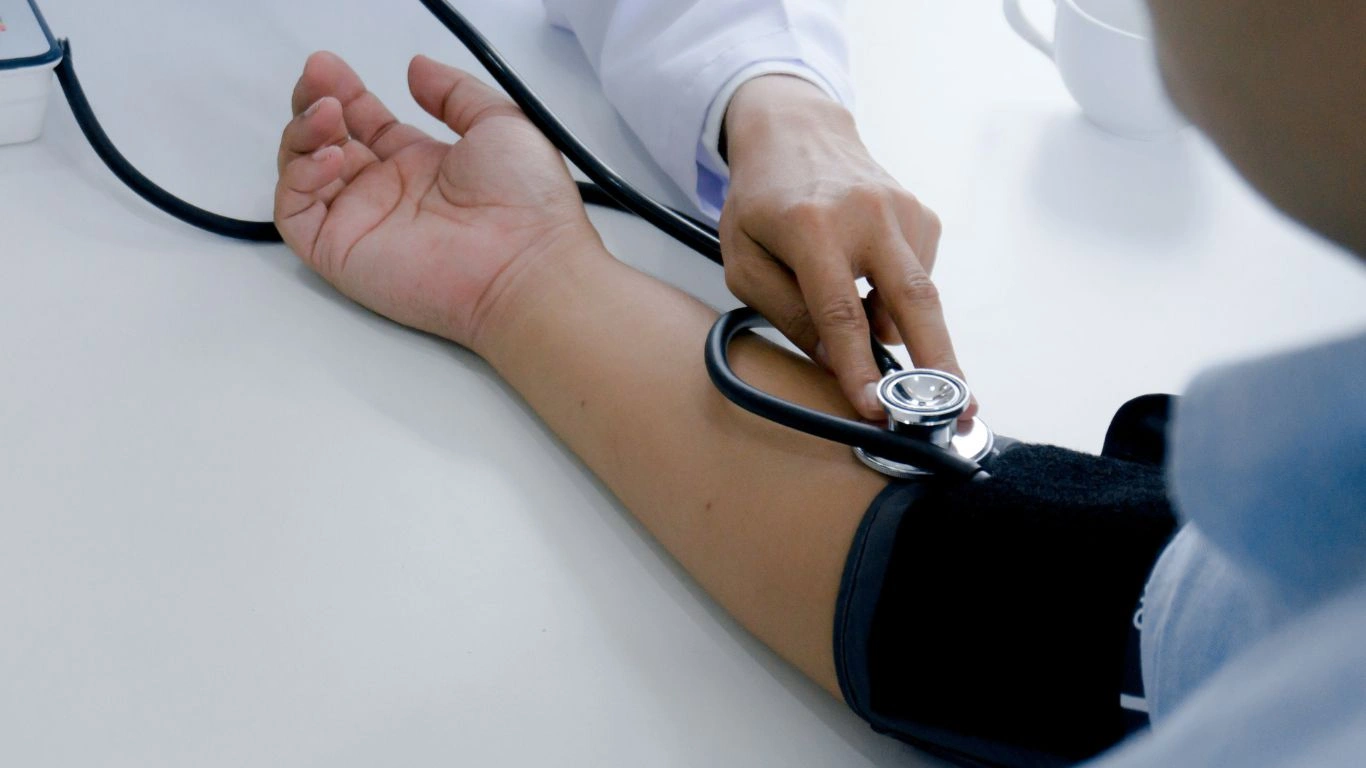
When it comes to dealing with blood pressure medication side effects, sometimes the solution lies in adjusting your treatment plan. Medications don’t always work perfectly on the first try, and this is a process many patients, including myself, have experienced. It’s not uncommon for doctors to tweak dosages or switch medications to find the right balance for you. But how do you know when it’s time to make these adjustments?
When to Talk to Your Doctor About Changing Medications
It’s essential to communicate openly with your healthcare provider about any side effects you’re dealing with. But how do you know when it’s time to discuss a change in medication? If your side effects are persistent, significantly impacting your quality of life, or making it difficult to adhere to your treatment plan, that’s usually a good sign it’s time for a conversation.
In my own practice, I’ve seen many patients hesitate to bring up medication side effects, thinking they might be overreacting or that the doctor wouldn’t take their concerns seriously. But believe me, your doctor is there to help you, and they want you to feel your best while managing your blood pressure. Sometimes a simple adjustment, like changing the timing of your medication, can make all the difference.
Different Classes of Medications and Their Effects
Blood pressure medications come in a variety of classes, and each has its own set of potential side effects. Here’s a quick overview of some common types of medication and what you might expect:
- ACE Inhibitors: These drugs help relax blood vessels and lower blood pressure. While generally well-tolerated, they can cause a dry cough or dizziness in some patients.
- Diuretics: Often known as “water pills,” diuretics help your body get rid of excess salt and water. Common side effects include dehydration, fatigue, and frequent urination.
- Beta-Blockers: These medications reduce heart rate and lower blood pressure. Side effects might include tiredness, dizziness, and in some cases, depression.
- Calcium Channel Blockers: These drugs help relax and widen blood vessels. They can sometimes cause swelling in the ankles or constipation.
Each person’s response to medication can vary, and it’s helpful to be aware of what side effects might occur with the medications you’re prescribed. If a particular class of medication doesn’t seem to be working well with your body, your doctor can explore other options that might be more suitable.
Managing Blood Pressure with Natural Supplements and Lifestyle Changes
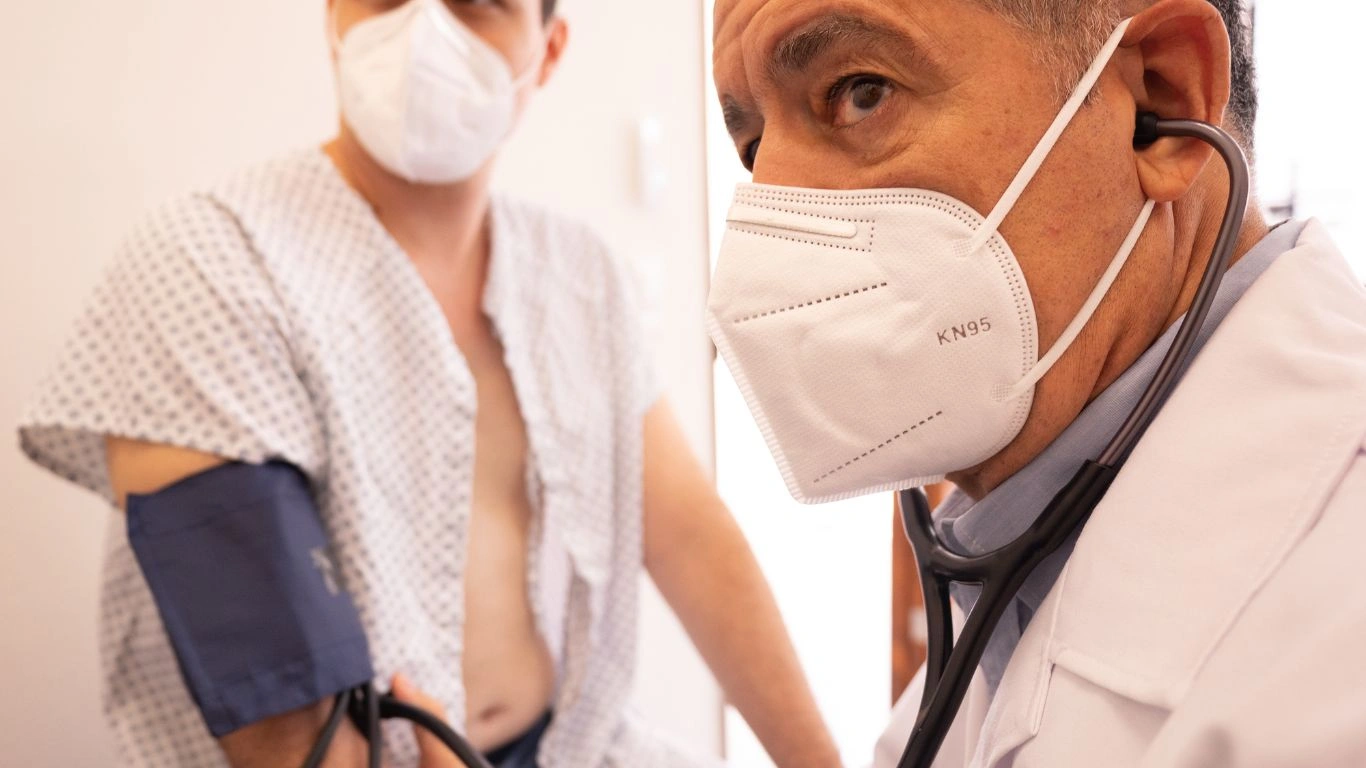
While medications play a crucial role in controlling blood pressure, there’s also a place for natural supplements and lifestyle changes that can complement your treatment plan. Over the years, I’ve worked with many patients who have found success by integrating natural solutions alongside their prescribed medication. However, these should never replace medication unless advised by your doctor.
Natural Supplements That May Help with Blood Pressure
There’s a growing body of research suggesting that certain natural supplements can help lower blood pressure. These are some of the most studied and commonly used:
- Omega-3 Fatty Acids: Found in fish oil, omega-3s have been shown to reduce inflammation and lower blood pressure. I’ve seen many patients benefit from adding an omega-3 supplement to their regimen, especially when combined with a heart-healthy diet.
- Coenzyme Q10 (CoQ10): This antioxidant is believed to help reduce blood pressure and improve heart health. While more research is needed, some studies have shown positive results for those with hypertension.
- Garlic: Garlic supplements have been linked to mild reductions in blood pressure. It’s a tasty addition to your diet, and it may provide some extra benefits for your heart health.
- Magnesium: Low magnesium levels have been associated with high blood pressure. Adding a magnesium supplement or increasing your intake through food could help maintain healthy blood pressure levels.
Again, talk to your doctor before starting any supplements, as some can interact with medications. The key is to take a holistic approach that supports your health, but doesn’t interfere with your prescribed treatment.
Making Lifestyle Changes to Support Healthy Blood Pressure
There are a few essential lifestyle changes that can make managing blood pressure medication side effects much easier. These changes may help your body respond better to treatment, alleviate some of the common side effects, and even reduce the need for medication in some cases.
- Exercise: Regular physical activity can help lower blood pressure, improve circulation, and manage side effects like fatigue. Even something as simple as a daily walk can have significant benefits.
- Diet: A heart-healthy diet rich in fruits, vegetables, whole grains, and lean proteins can help manage blood pressure and reduce side effects. Avoiding excess salt and processed foods is key.
- Stress Reduction: Chronic stress can elevate blood pressure and exacerbate side effects like anxiety or insomnia. Techniques like meditation, deep breathing, or yoga can help reduce stress levels.
In my experience, patients who embrace these lifestyle changes alongside their medication often feel better overall. It’s about giving your body the best possible chance to thrive while managing your blood pressure effectively.
Staying Positive and Patient: It’s a Journey

Managing high blood pressure and dealing with medication side effects isn’t always easy, but it’s important to stay positive and patient throughout the process. There will be ups and downs, and it may take time to find the right balance of treatments and lifestyle changes that work for you. Remember that every person’s journey is different, and it’s okay to ask for help along the way.
As someone who works with patients every day, I can assure you that managing blood pressure successfully is a marathon, not a sprint. Keep in mind that you’re taking proactive steps to improve your health, and that’s something to be proud of!
If you’re struggling with medication side effects or feel like your treatment plan isn’t working as well as it should, reach out to your healthcare provider. They’re there to guide you and make adjustments as needed. Together, you can find the right approach to managing your blood pressure and living your healthiest life.
Understanding Long-Term Management of Hypertension

Managing hypertension isn’t a one-time thing; it’s a lifelong commitment to taking care of your health. The side effects of blood pressure medication can feel overwhelming at first, but over time, as you work with your healthcare provider, you’ll develop strategies to minimize those effects. The goal is to find a sustainable approach that works for your body, your lifestyle, and your long-term health goals.
The Role of Consistency in Managing Hypertension
One of the most important factors in managing high blood pressure is consistency. Consistently taking your medication as prescribed, maintaining a healthy lifestyle, and regularly monitoring your blood pressure are essential steps in keeping hypertension under control. You might think that missing one or two doses won’t matter much, but in reality, even small disruptions in your routine can have an impact on your blood pressure over time.
As someone who’s been in the field for a while, I’ve seen how easy it is to fall off track when life gets busy. It’s easy to forget to take your medication, or you might feel tempted to skip it when you’re feeling good. But remember, keeping your blood pressure stable is a marathon, not a sprint. By sticking to a regular schedule, you’re giving yourself the best chance at staying healthy in the long term.
Tracking Progress and Making Adjustments Along the Way
Tracking your progress is key to understanding how well your treatment plan is working and identifying any areas that need adjustment. Regular blood pressure readings can give you and your doctor valuable insights into whether the medication is doing its job. You should aim to check your blood pressure at home a few times a week, or as directed by your healthcare provider.
In addition to tracking your blood pressure, keeping an eye on how you’re feeling physically and emotionally is just as important. Sometimes the side effects of medication can be subtle and build up over time. That’s why I always tell my patients to pay attention to their body’s signals. If you notice persistent fatigue, dizziness, or other symptoms, it might be time to revisit your treatment plan.
How to Get Support While Managing Blood Pressure

Dealing with blood pressure medication side effects isn’t something you have to do alone. Whether it’s support from your healthcare provider, family, or friends, having a strong support system is invaluable. Managing hypertension and medication side effects can be challenging, but knowing that you’re not alone can make a huge difference in your emotional well-being.
Finding a Healthcare Provider You Trust
Your relationship with your healthcare provider is one of the most important aspects of managing your blood pressure. I’ve worked with many patients who initially felt uncertain about their treatment plan, but once they developed a strong relationship with their provider, they felt more empowered to take control of their health. Having a provider who listens to you, takes your concerns seriously, and is willing to make adjustments is crucial to your success in managing hypertension.
Don’t be afraid to ask questions or voice concerns. Whether you’re worried about a side effect or simply want more information about how your medication works, your healthcare provider is there to guide you. And if you feel like your current doctor isn’t a good fit, it’s okay to seek a second opinion. Your health deserves to be in the best hands possible.
Building a Supportive Network at Home
In addition to your healthcare provider, having a support system at home can make a big difference in your journey. Family and friends who understand your condition can offer emotional support and encouragement. Sometimes just knowing that someone is there to listen when you’re feeling frustrated can help you push through challenging days.
In my own practice, I encourage patients to talk openly with their loved ones about their hypertension and medication side effects. When your family understands what you’re going through, they can help remind you to take your medication, prepare heart-healthy meals, and even join you in exercising or practicing relaxation techniques. This kind of support can reduce stress, which, as we know, is a major factor in managing blood pressure.
Knowing When to Seek Emergency Help
While most blood pressure medication side effects are manageable, there are times when you need to seek emergency medical attention. If you experience symptoms such as chest pain, difficulty breathing, severe headache, vision problems, or confusion, these could be signs of a more serious issue. It’s essential to trust your instincts in these situations and seek help right away.
For example, if you experience sudden swelling in your legs or face, it could be a sign of an allergic reaction or a more serious cardiovascular issue. If you ever feel like something is wrong and you’re unsure whether it’s related to your medication, don’t hesitate to call your doctor or go to the emergency room. It’s always better to be safe than sorry when it comes to your heart and overall health.
References and Disclaimer
The information provided in this article is intended to be a general guide and should not replace medical advice from your healthcare provider. Always consult with your doctor before making changes to your medication or treatment plan. The management of hypertension is a personalized process that requires professional input and monitoring.
For more resources and information on hypertension, you can visit HealthUsias, where you’ll find helpful articles and expert advice on managing blood pressure effectively.
Disclaimer: The content in this article is for informational purposes only. It does not constitute medical advice, diagnosis, or treatment. Always seek the advice of your physician or other qualified health provider with any questions you may have regarding a medical condition.

Dr. Gwenna Aazee is a board-certified Internal Medicine Physician with a special focus on hypertension management, chronic disease prevention, and patient education. With years of experience in both clinical practice and medical writing, she’s passionate about turning evidence-based medicine into accessible, actionable advice. Through her work at Healthusias.com, Dr. Aazee empowers readers to take charge of their health with confidence and clarity. Off the clock, she enjoys deep dives into nutrition research, long walks with her rescue pup, and simplifying medical jargon one article at a time.

